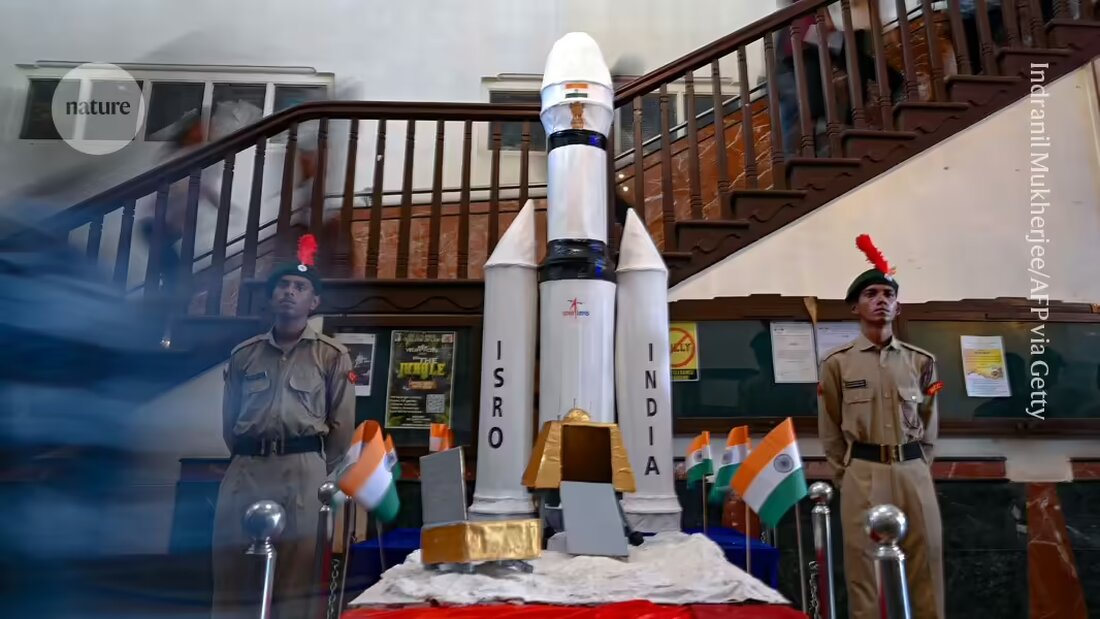India's latest annual budget, the first since Prime Minister Narendra Modi was re-elected to a third term, heavily promotes renewable and nuclear energy as well as additional money to support the country's emerging space industry. The government announced plans to work with the private sector to establish small nuclear reactors and develop nuclear technologies to secure energy.
Finance Minister Nirmala Sitharaman, presenting the 2024-25 Budget in India's Parliament on July 23, said nuclear energy would form "a very significant part of the energy mix" for India's development. The government also plans to advance research into small modular reactors, whose parts can be assembled in a factory and transported to the installation site. The exact means for the nuclear energy plans were not specified.
Budget commitments for science were largely in line with many researchers' expectations, with funding commitments for areas of national pride and applied science.
India's space arm will receive 10 billion rupees ($120 million) to set up a venture capital fund to support projects that will expand the country's space industry five-fold over the next 10 years. In total, the department will receive $156 million, a 4% increase over the 2023-24 budget.
Sitharaman also announced that Anusandhan National Research Foundation (ANRF) will become operational. The foundation's goal, first announced in 2019, is to strengthen funding for university research and expand the scope of that research. The ANRF hopes to attract private funding and distribute large grants from a sizable pool of about $11 billion.
The combined allocations for key ministries and departments involved in research — Science and Technology; agricultural research; nuclear energy; earth sciences; health research; new and renewable energy; and space — totals $7.1 billion, a 20% increase over the 2023-24 budget. However, the bulk of the funding will go to the Ministry of New and Renewable Energy, whose 2024-25 allocation of $2.28 billion is almost double the 2023-24 allocation.
Welcome support
Heads of key science departments under the Ministry of Science and Technology welcomed the operational launch of the ANRF as well as the new venture capital fund for the spatial department and research on climate-resilient agriculture. “Research and development efforts in India are primarily academia-centric and often the innovations that emerge at the lab level do not make it to commercialization,” says Rajesh Gokhale, secretary of the biotechnology division of the Ministry of Science and Technology in New Delhi. ANRF's funding for basic research and prototype development will pave the way for research and innovation-driven research in the private sector, he adds.
Geneticist Tapasya Srivastava at the University of Delhi South Campus expects Sitharaman's focus on job creation and the internship program, a highlight of the budget, will help science students find work in private companies. In the long term, she believes this will help “encourage students to choose science as a career, with more opportunities beyond academia.”
Real money
Others, however, were less impressed. “What is important is not the money promised in the budget, but the actual volume released during the year, which is usually less than what was promised,” says geneticist Subhash Lakhotia at Banaras Hindu University in Varanasi. “The actual amount available to individual researchers is relatively small in real terms, due to inflation, increased salaries and the growing number of researchers competing for limited money.”
India invested 0.64% of its gross domestic product (GDP) in research and development during 2020-2021. In comparison, average research and development spending in the 38 wealthy countries of the Organization for Economic Co-operation and Development (OECD) was 2.7% in 2022 and China's was 2.4% in 2021.
Lakhotia doubted that research funding would increase India's investment in research as a percentage of GDP this year.
C. P. Rajendran, a geologist at the National Institute of Advanced Studies in Bengaluru, agrees. “The budgetary allocation for science in India continues to remain modest with only minimal increases,” he says. “There’s not much to be excited about.”

 Suche
Suche
 Mein Konto
Mein Konto

